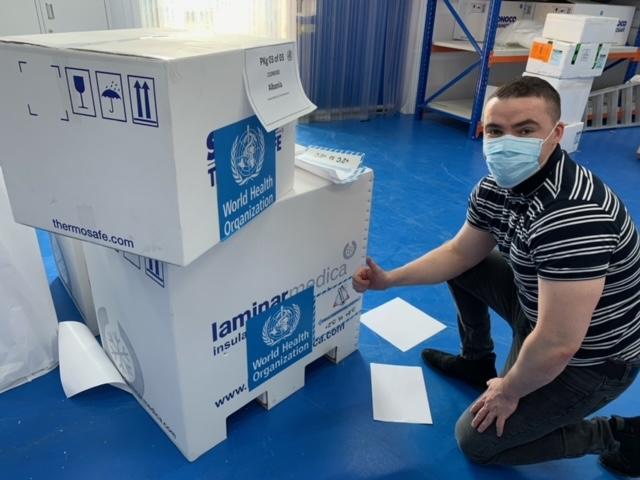
During the COVID-19 pandemic, the term ‘supply chain disruption’ rose to considerable prominence. Many private sector and for-profit development partners regularly use it to explain their underwhelming performance in fulfilling key global health contracts. However, a closer examination of these ‘humanitarian warriors’ annual reports reveals these same entities showcasing their substantial financial returns.
Allow me to share a lesser-known truth. Despite the World Health Organization’s recent declaration to end COVID-19 as a global health emergency, nothing substantial has changed in the realm of ‘supply chain.’ While we may encounter ‘new’ buzzwords such as near-shoring, regionalization, localization, and resilience, these concepts are not novel. They have long existed as strategies documented in supply chain textbooks. So, the next time your private sector, for-profit supply chain partner blames ‘supply chain disruption’ for their poor performance, I encourage you to investigate further. Analyze the data and uncover the real issues at hand.
Unfortunately, from my own experience, the effectiveness of public health supply chains in supporting developing nations is far from satisfactory. This is a marked contrast to the seamless delivery of consumer goods to developed nations. Years of neglect have allowed certain actors to enter the sector, prioritizing their business agendas and profiteering from global health challenges. Leadership and management positions are often granted based on longevity rather than competence, and there is a glaring absence of talented young professionals entering the public health supply chain field.
Public health schools routinely overlook supply chain education in their programs, often relegating it to business schools. Nevertheless, there are indications of a change in this area. I have successfully persuaded my present academic institution, New York University’s (NYU) School of Global Public Health, to incorporate a public health supply chain lab into its curriculum starting in the Fall Semester of 2023.
Furthermore, it’s worth noting that supply chain management graduates can earn two to three times more in the private sector than in public health. Given the prevalent unhealthy workplace cultures in much of the global health sector (evident with a simple Google search), why would they choose to work in this field?
It is time for the private sector to take responsibility, reduce profits, and genuinely prioritize corporate social responsibility, global health, and climate change. Global health demands significant improvement. Public health supply chains urgently require reform. For this change to occur, it will require visionary leaders from the private sector to take the helm and guide the process. Critics may argue that this is unlikely to happen and suggest increasing taxes on the wealthy or boosting donations as an alternative. However, we’ve observed that such compulsory measures often fail to deliver their intended results, become tools of political manipulation, and are ineffective. The private sector cannot just take a stance anymore on societal issues, Gen Z expects them actually to do something on these issues. Going beyond rhetoric only, it’s crucial to capitalize on this momentum.
Let’s examine the following report from Forbes in 2022:
A staggering profit of $5 trillion! Imagine diverting a larger percentage of this wealth towards improving global health outcomes, thereby offering the world’s most disadvantaged communities a better shot at life. A potential approach for those happy to heed Gen Z’s advice would be for each organization listed in the Forbes Global 2000 to commit to tackling a specific Sustainable Development Goal, helping countries rapidly advance towards the targets in the next seven years. Donors, MoHs, multilateral organizations, private sector entities, academic institutions, and activists unite to pursue this shared goal, breaking away from the currently profit-driven, transactional model in global health. For others unwilling, taxes and regulations should then be the nudge they need to actually live up to the compassion they tout in their mission and vision statements.
The sluggish progress on the Sustainable Development Goals, as it stands, can only be revitalized through proactive private sector intent. To the decision-makers in the private sector reading this, I strongly encourage you to delve into the 2023 Special Edition of the SDG Progress Report and the new Future of Global Health Initiatives process. From there, identify a meaningful way, based on your unique strengths and capacities, that you can contribute. Remember, it doesn’t always have to be monetary assistance.
We have witnessed positive examples in the past of the private sector stepping up, such as CIPLA’s actions during the HIV/AIDS epidemic, wherein they significantly reduced the prices of antiretroviral medication. However, CIPLA didn’t just wake up one day with this revolutionary idea. No, they were nudged, prodded, and inspired by a band of global rebels who wouldn’t take ‘no’ for an answer. Even when the big pharma bullies tried to shut them down, CIPLA stood firm with these fearless activists. So, who’s next? Who will be the new ‘CIPLA’, shaking up the health world? Specifically ‘the supply chain’, which holds a big part of the transformative power to unlock remarkable health outcomes.

Kieran, at the IHC hub in Dubai